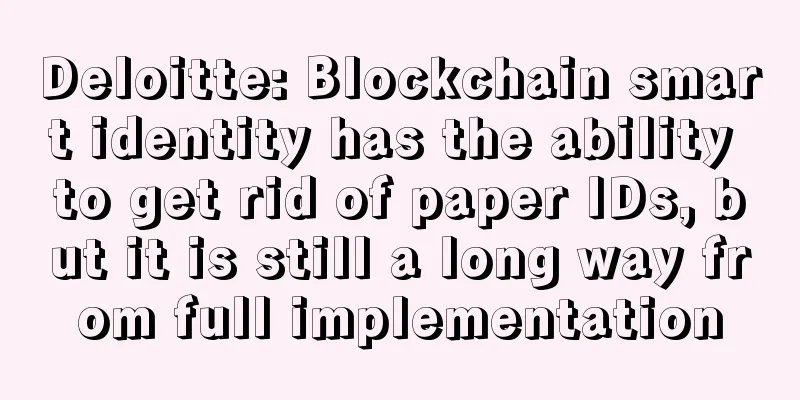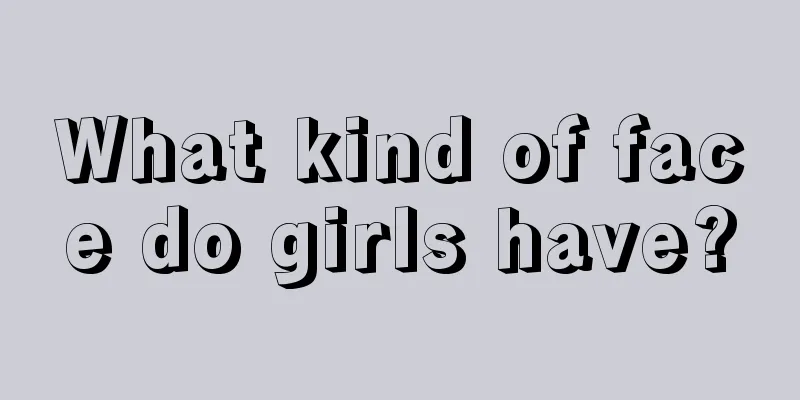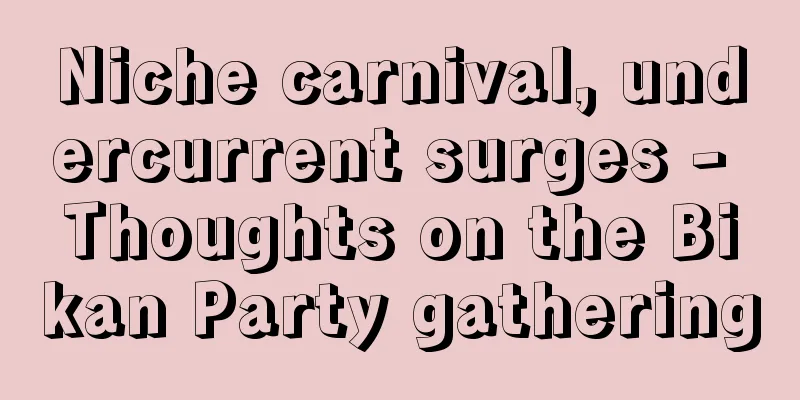Deloitte: Blockchain smart identity has the ability to get rid of paper IDs, but it is still a long way from full implementation

|
Deloitte, one of the world's four largest accounting firms, is currently developing a universally compatible blockchain smart identity project that has the potential to impact every aspect of our lives. In an era where more and more data is transferred using mobile phones and electronic devices, identity management is still stuck in the paper era. Traveling abroad, driving a car and obtaining benefits from a country all require some form of identification (ID) in paper or plastic form. Various public and private organizations often ask for personal or company identification information, which is often required repeatedly throughout the day. Deloitte is working on a blockchain-based 'smart identity' that aims to permanently solve this problem and move us away from the paper-based identity era. Blockchain can provide a universal identityAllowing users to manage their own identities and having trusted third parties verify them opens the door to an era where we are no longer constrained by the need to constantly prove our identity. Digital identities running on blockchain technology can not only authenticate businesses and individuals, but also "objects or things". Alexander Shelkovnikov, Deloitte UK blockchain leader, said of the project’s current progress:
Sovereign identity is still a long way offIn an ideal world, people should be able to manage their own identities and be responsible for how those identities are shared. Deloitte recognizes this need, but they know we are still a long way from this goal. Alexander Shelkovnikov said:
The identity of people and thingsA central question for all types of digital identity is: Who is responsible for the identity service? People always expect their privacy to be protected when they are separated from their personal information and their identity information is used for the purpose for which it is shared. As Shelkovnikov said:
Able to run on all blockchainsAn interesting aspect of the Deloitte project is that Smart Identity as a protocol can be easily used on different blockchains, and the current version of the prototype is using the Ethereum blockchain. When asked who will actually hold the data, Deloitte said there are many trusted data repositories available, but in the future a hybrid model involving a network of trusted custodians and distributed data services will also be used. Future scope of application of smart identity projectsIn order to get rid of the paper-based identity system we are still using today, it is inevitable that various institutions will need to be involved in this process, including governments, businesses and individuals. Cointelegraph asked Shelkovnikov about the question of provenance and how it would be implemented. Deloitte said that provenance might be added to the project later:
Providing identity to those without itOne of the central problems in third world countries is that millions of people cannot prove their identity, which results in them being deprived of basic services and benefits. Regarding whether smart identity solutions will expand to developing countries, Deloitte does not see any barriers to the deployment of such technology, which is already developing globally without any geographical restrictions:
|
<<: Google follows in the footsteps of Amazon and IBM and opens blockchain testing services
Recommend
The fate of a woman with a mole on her chin Is it good for a woman to have a mole on her chin
In our impression, many people have moles on thei...
Pictures of Sichuan characters and facial features analysis of Sichuan characters
A "川"-shaped eyebrow refers to an eyebr...
Exit, One of the World's Largest Music Festivals, Now Accepts Bitcoin for Ticket Purchases
Exit, one of Europe’s largest music festivals, ha...
People with this kind of palmistry are always surrounded by the opposite sex.
Romantic luck and popularity with the opposite se...
Layer1's New Ethereum is a Better Ethereum?
Ethereum's position as a blockchain infrastru...
We all forget that Bitcoin does not yet have a globally accepted story
Everyone has a different understanding of volatil...
How can a small amount of capital create greater returns in a bull market?
I plan to write 2-3 issues. Today is the first is...
What is the best location for birthmarks? Detailed explanation of the location of birthmarks that bring good luck
In this world, there are very few people who have...
Women know their fate from looking at their faces
If a woman has a high brow bone, she will be very...
Bitcoin mining company Butterfly Labs accepts settlement
Bitcoin mining company Butterfly Labs and two of ...
Cryptocurrency highlights of 2020 and top 10 predictions for 2021
In 15 days, the turbulent and magical 2020 will u...
How to read the face of a woman with many love affairs?
How to read the face of a woman with many love af...
Is it good to have a mole on the right side of the nose? Analysis of the face of a woman with a mole on the right side of the nose
A mole on the nose represents a person's driv...
What does a bad woman who likes to take advantage of others look like? Which women like to take advantage of others the most?
There are many people in life who like to take ad...
The facial features of a kind woman The facial features of a kind woman
In today's society where people's hearts ...









